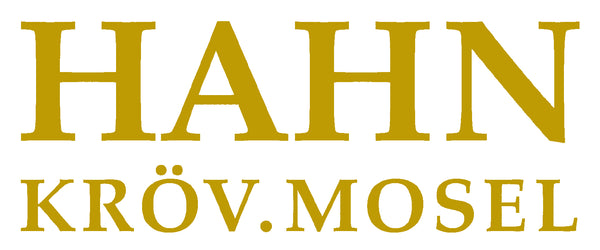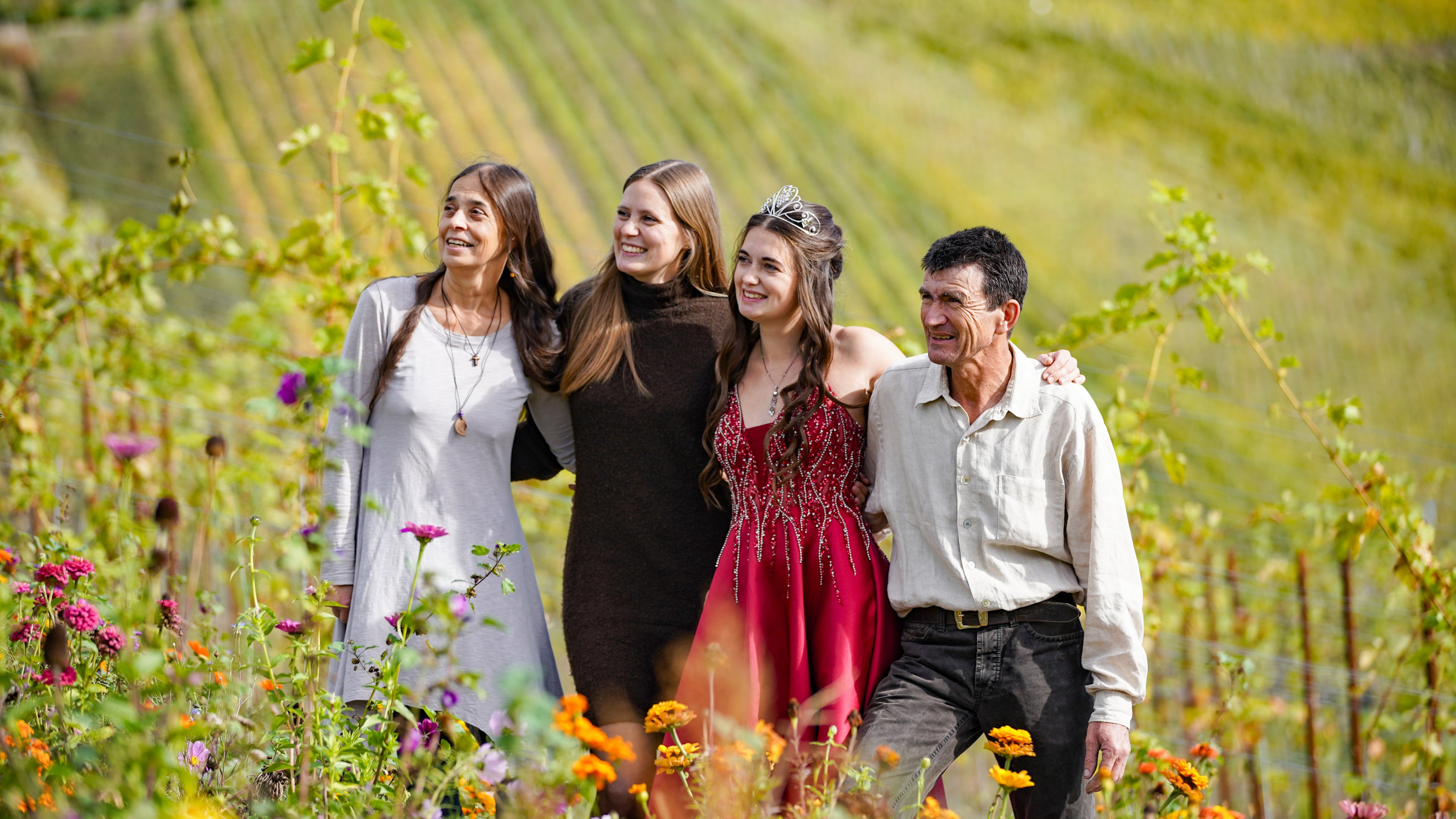
We are FAIR'n GREEN. But what does that mean? And what are we doing to ensure that our children have a future?
our responsibility
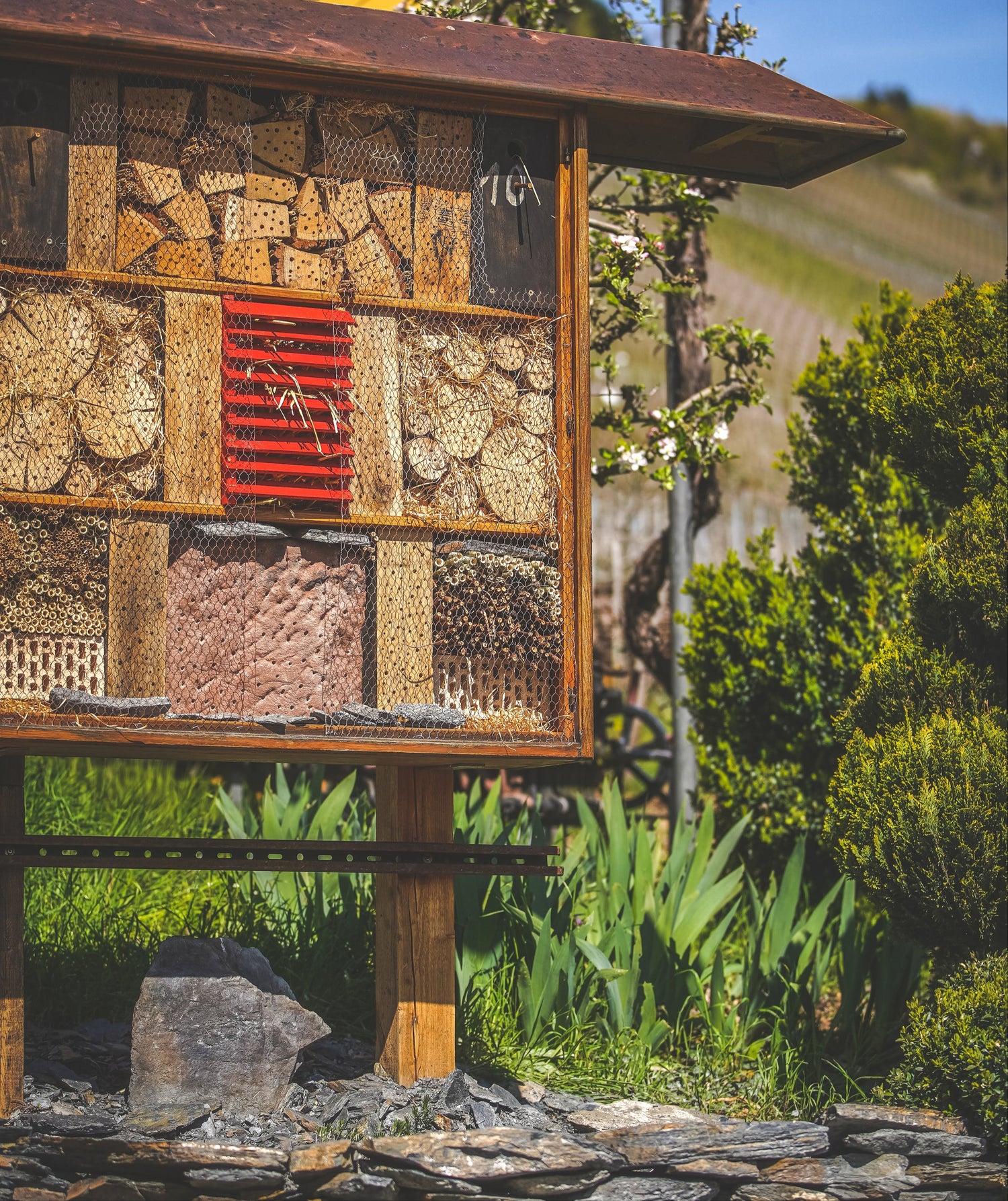
Fair'n Green
We wanted to give our sustainability philosophy a title. Taking responsibility for our environment, especially with regard to future generations , has always been important to us. The award of FAIR'N GREEN - the seal of sustainability , reflects our attitude and encourages us to further improve bit by bit.
As a small family business, we have the great strength of having the entire value chain in our own hands . We are responsible for every step of the way, from vineyard work through wine production to filling and shipping of each individual bottle.
The FAIR’N GREEN certification also covers the entire value chain and all areas of sustainability - with equal emphasis on economic , ecological and social aspects. Thus we operate in a truly sustainable manner.

Why we are not organic!
For us, it is important to consider all aspects of sustainability comprehensively . While in organic viticulture the focus is exclusively on the grape growing in the vineyards, we have decided to pursue a more holistic approach.
There are some restrictions in organic viticulture, such as not using synthetic pesticides. Instead, only contact agents may be used, but these must be applied more frequently and in larger quantities to protect the vineyards from fungal diseases. These more frequent tasks in the vineyard lead to increased soil compaction , and the larger amount of copper can lead to a buildup of heavy metals in the soil.
For these reasons, we have decided against a organic certification and in favour of the FAIR'n GREEN certification . This approach allows us to fully integrate our sustainable practices and protect the health of our vineyards and the environment in the way we deem best.

"Zukunftsweine" or "wines of the future"
Here’s to a delicious future!
When we first heard about the “Zukunftswein” movement in 2022, it was immediately clear to us: We wanted to get involved. Even though we had only just planted our first grape variety of the future (Muscaris) and were not yet able to sell "Zukunftswein" in bottles, we saw the great dynamic and the huge advantages in what was then still a small movement:
- Reduction of pesticide use and thereby tractor traffic by up to 80% -> thus improving the CO² balance
- Energy savings and environmental relief (less pesticide and water consumption)
- Insects and soil organisms thrive in their habitats
And the best aspect : the wines tasteexcellent too!

Vision Mosel
Vision Mosel is an association of wine-makers along the German - Luxembourg - French Moselle-Region , and we are proud to have been part of it since the beginning . Through this network, winegrowers work together to make wine-growing sustainable and future-proof .
We are increasingly focusing on the “Zukunftsreben” (grape varieties of the future) that can better withstand the challenges of climate change. Our vision is to actively shape the viticulture of the future on the Moselle with these varieties and to enrich the world of wine with their diversity.
Our vision? Shaping the winemaking of tomorrow today while preserving the special identity of the Moselle region . On March 29, 2025, we invite you to the second joint presentation of the wines of the future in Trier and celebrate the new generation of Moselle wines with you. Be there and experience the wine world of tomorrow - sustainable , exciting and full of flavor .
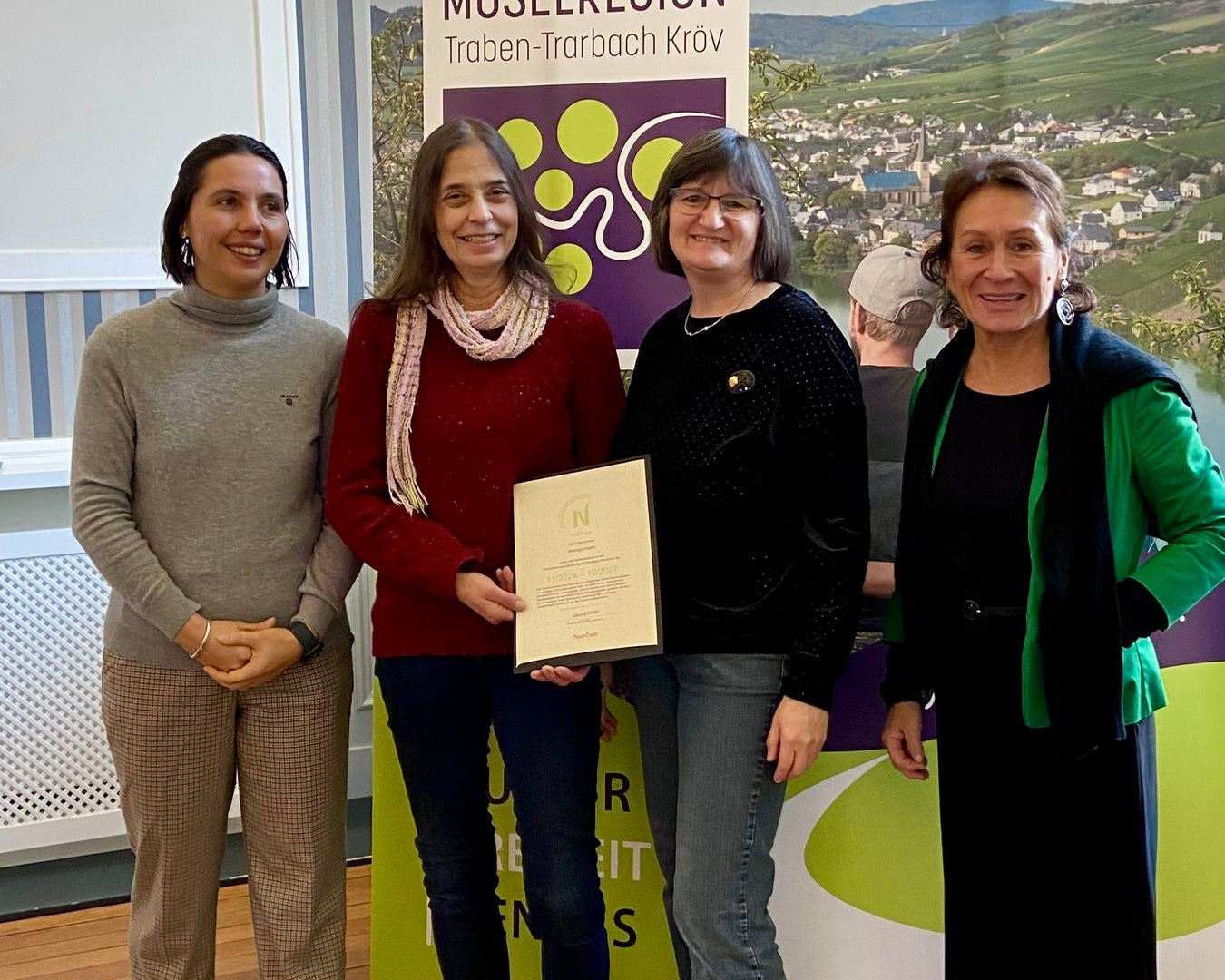
Certified Partner of the Sustainable Travel Destination
The Moselle region of Traben-Trarbach Kröv has been officially certified as the first "Sustainable Travel Destination" on the Moselle – and we are proud to be a partner!
This recognition marks the beginning of a long-term development process. Together with other businesses, we are committed to environmentally friendly tourism, regional value creation, and social responsibility.
Our goal: to shape the Moselle region in a sustainable and future-oriented way.
We are excited to actively contribute to this journey!
Our projects
-

production of own electricity
Since 2024, we have been producing our own electricity by a photovoltaic system on our roofs.
-
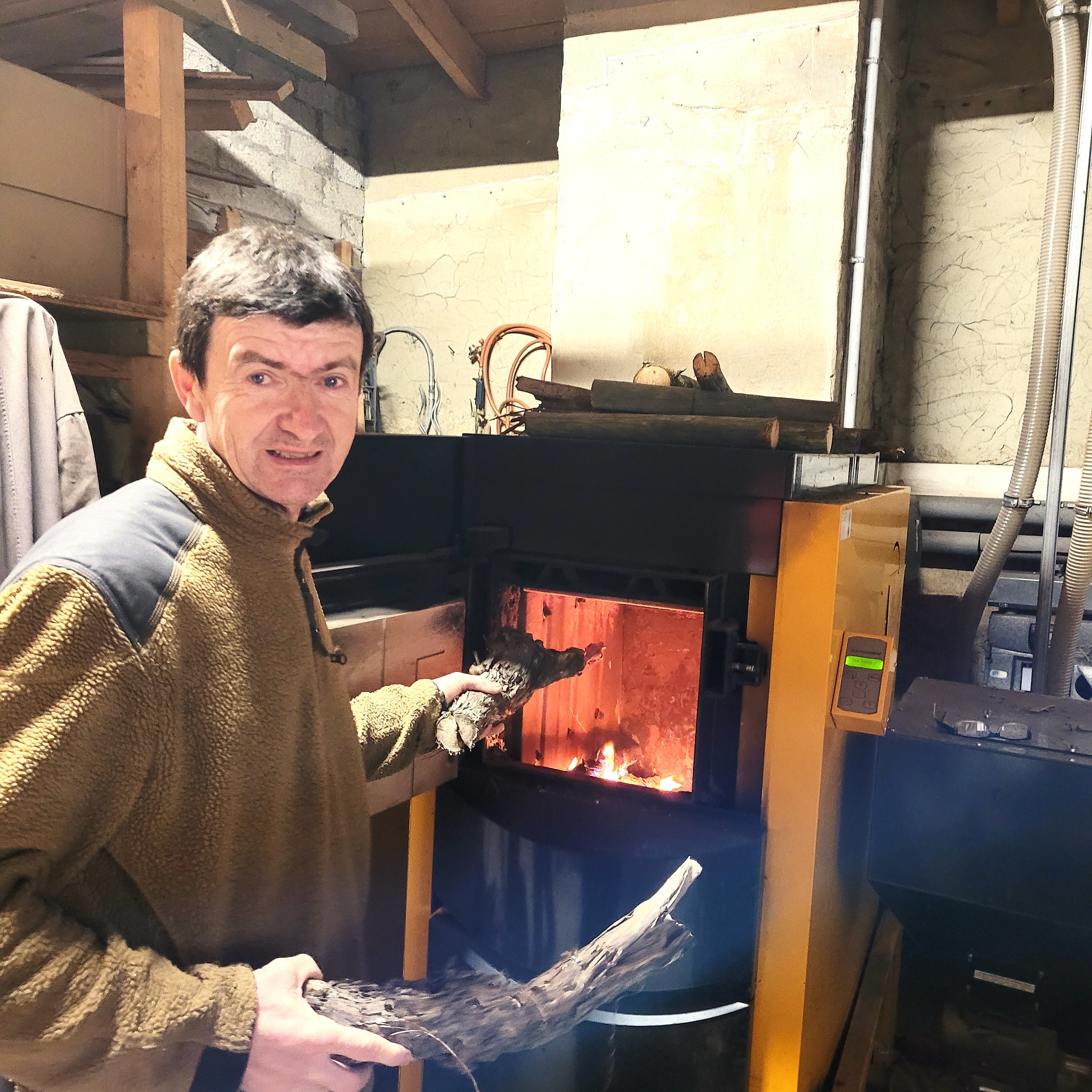
sustainable heating
For heating in winter we use wood pellets and old vine wood.lks.
-
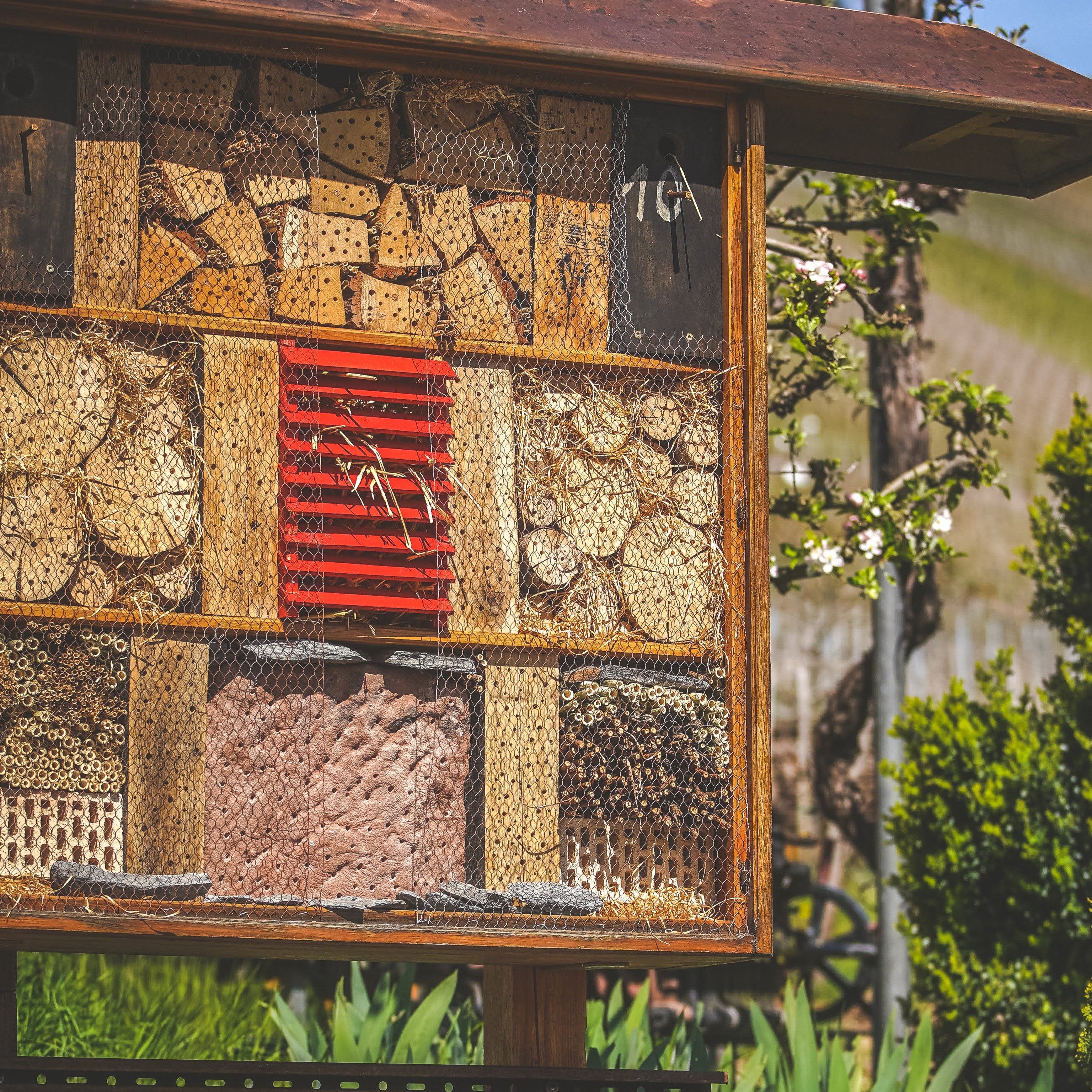
insect hotel
Our insect hotel has been giving wild bees and other insects a home for several years now.
-
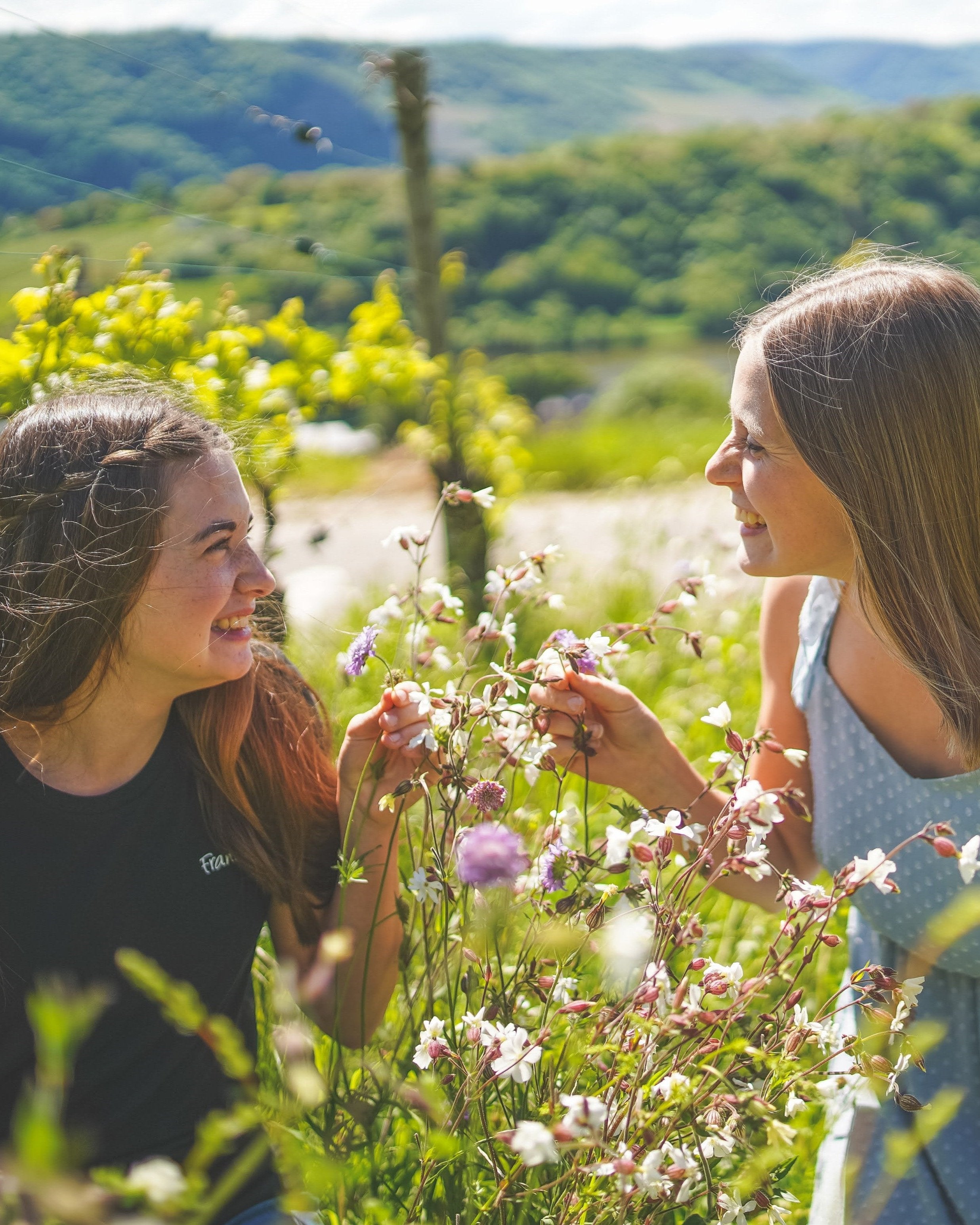
greening in the vineyard
In spring and summer, the lanes between the vine rows bloom in all colors because we deliberately plant certain grasses and flowers there to promote biodiversity.
-

Family-oriented work
We work closely together as a team, discuss important decisions in a team meeting and have a family-like relationship with our employees.
-
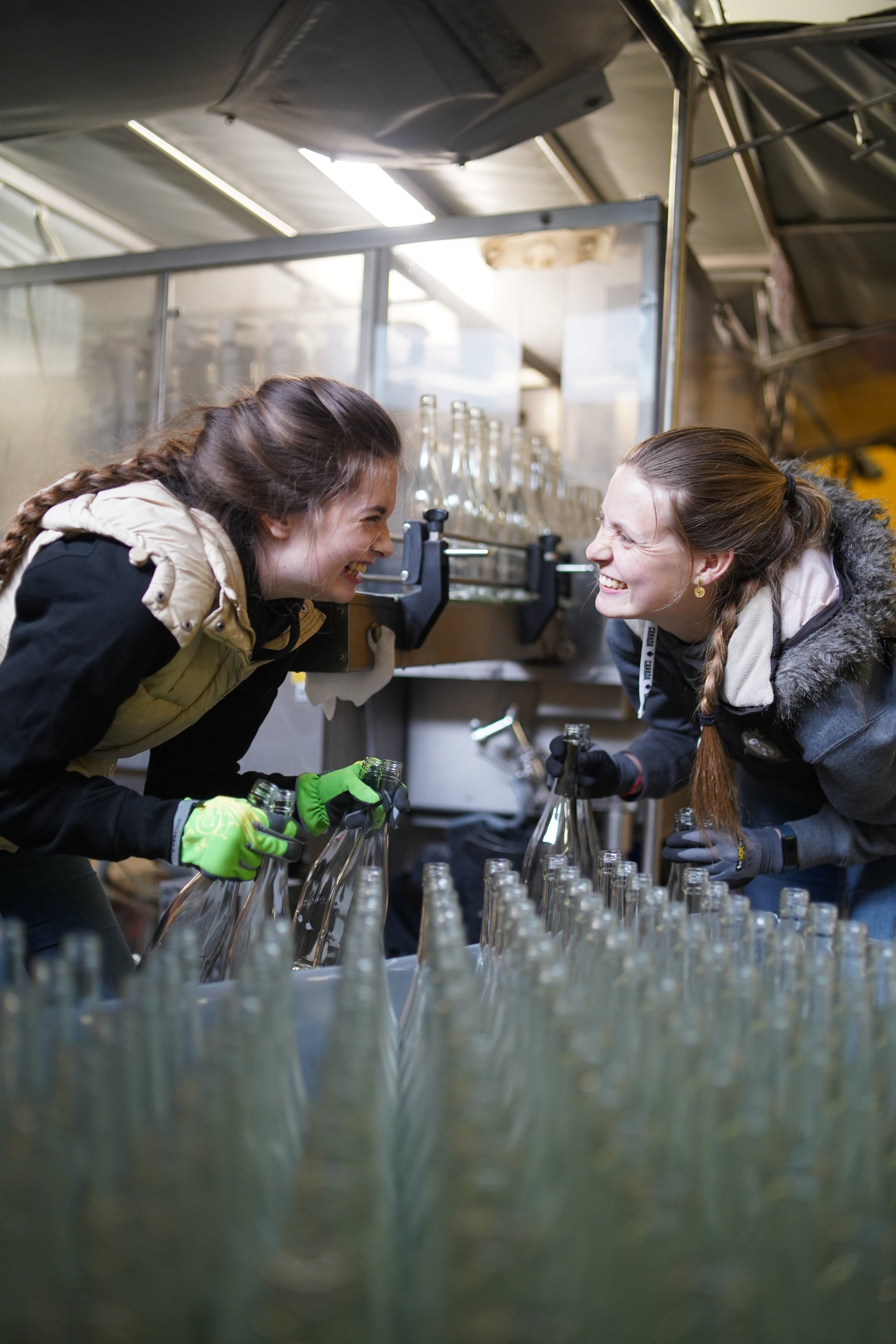
gentle work in the wine cellar
When making wine, we pay attention to developing our wines gently and naturally with as little intervention as possible.
-
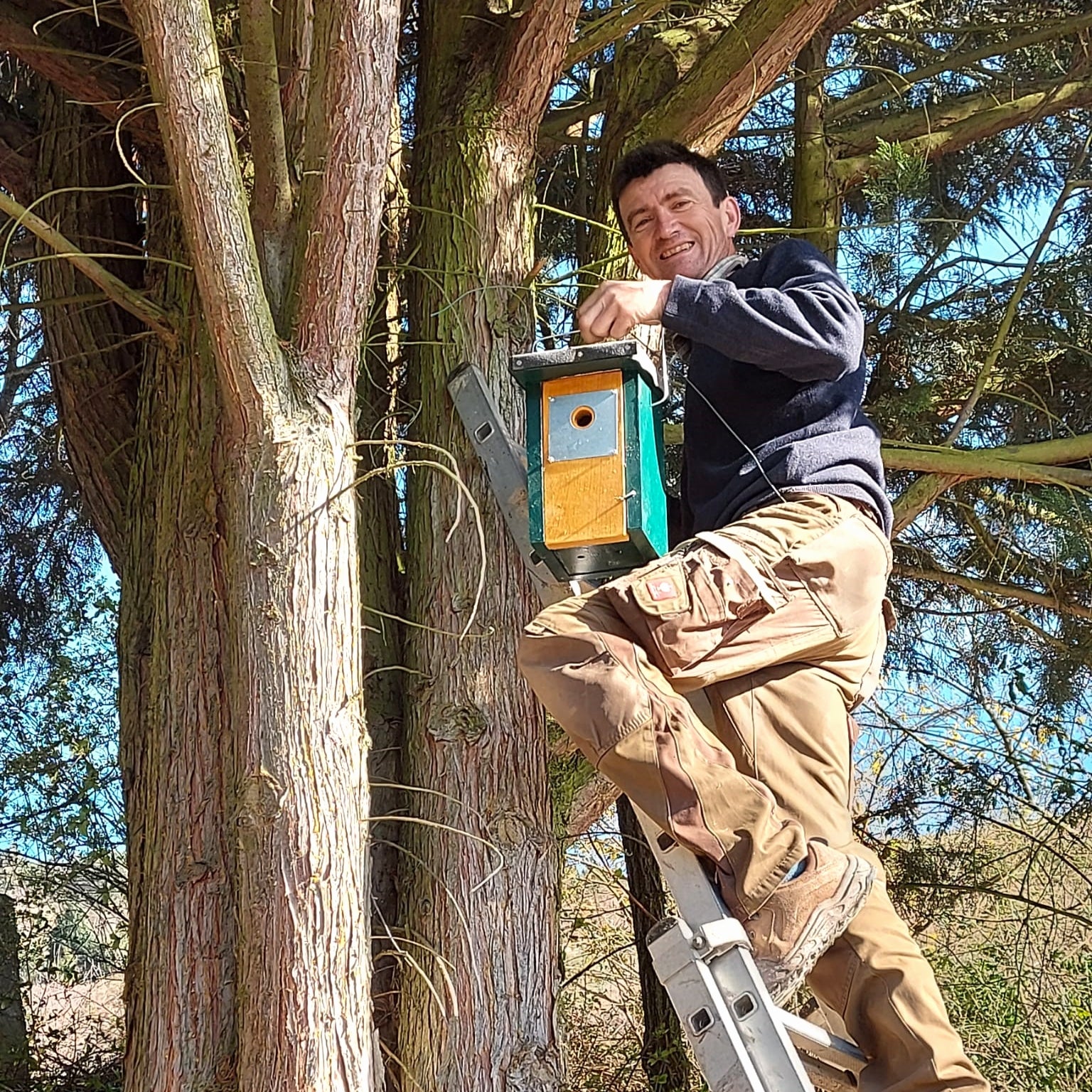
hanging nesting aids
We have distributed over 20 nesting aids and bird houses for bats, blue tits, robins and many other birds across our property.
-
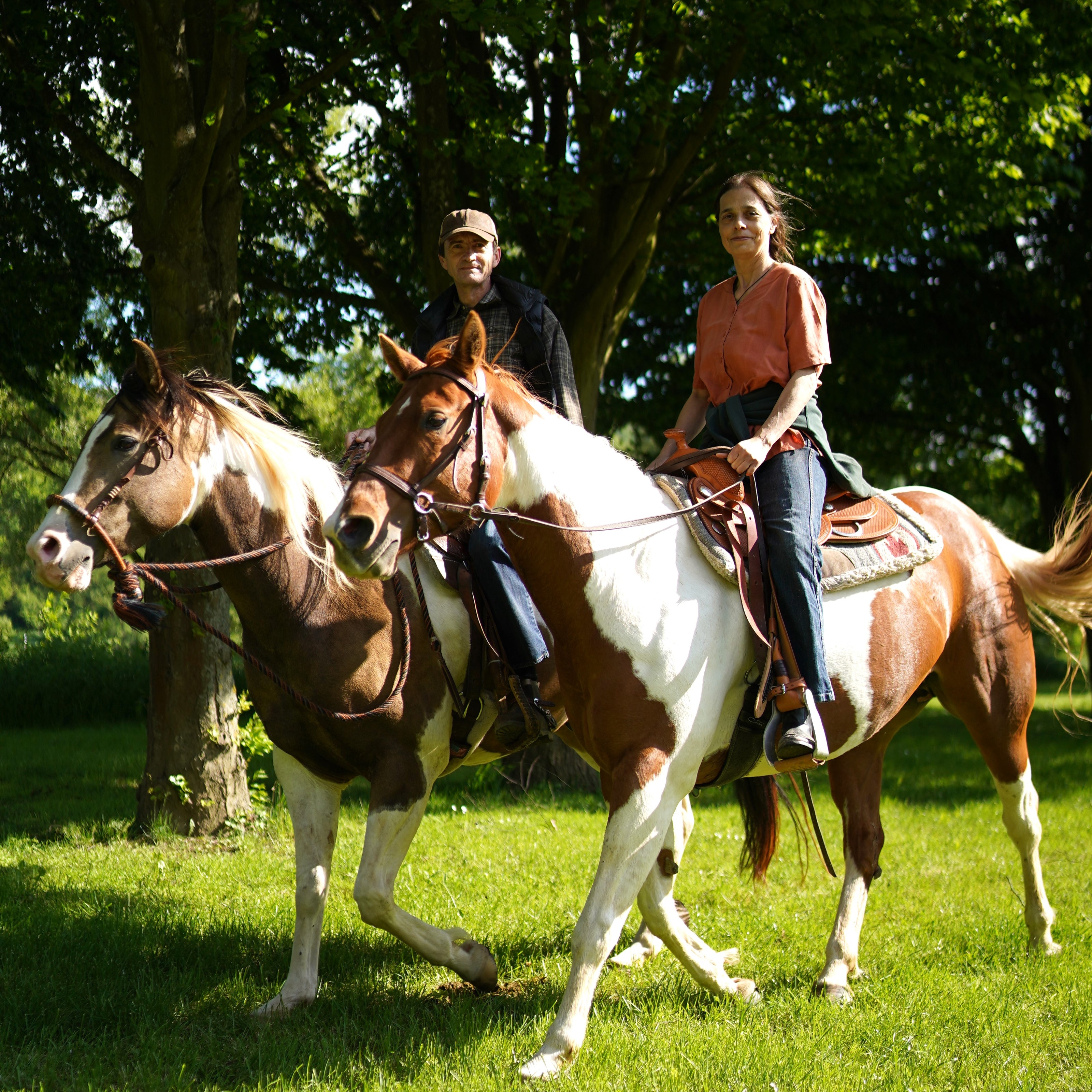
producing your own fertilizer
Our fertilizer consists of horse manure from our own horses, which is enriched with biochar, rock flour and bokashed organic waste as well as effective microorganisms (EMa) and fermented.
-
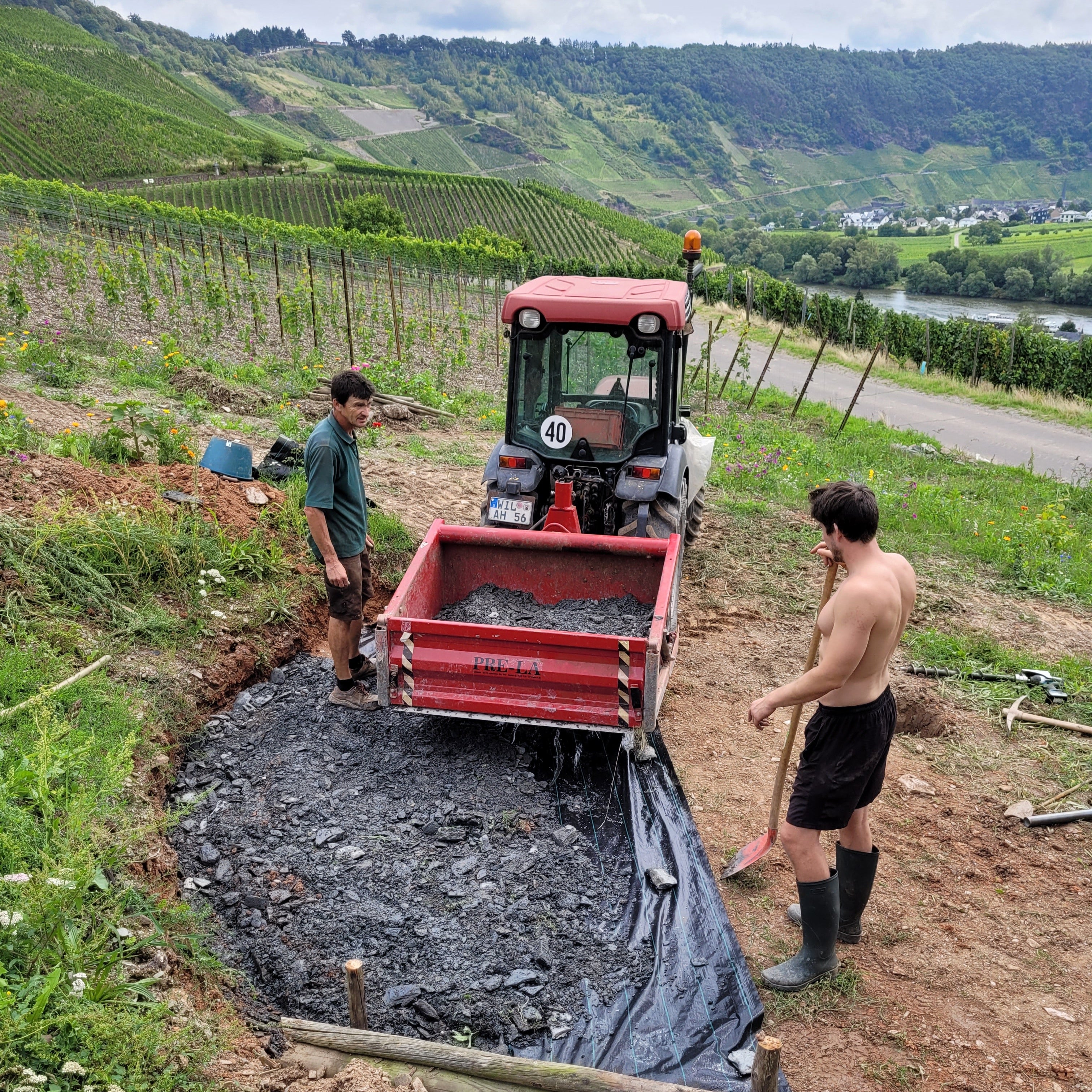
BiOase
The BiOase, which will be completed in 2025, is a retreat for people and animals. It offers insects and small animals a habitat through a pile of dead wood, a sandarium, a dry stone wall, various trees and numerous flowering plants. A large bench invites hikers to rest and enjoy the beautiful view.
-

No use of herbicides
To promote biodiversity, we do not use herbicides. Instead, we regulate plant growth manually and sometimes even use an old-school hoe on our steepest slopes.
-

Schafe im Weinberg
Seit Oktober 2025 weidet eine kleine Herde von sieben Ouessantschafen in unserem Weinberg. Durch den selektiven Verbiss wird das Pflanzenwachstum gefördert, und ihre Ausscheidungen liefern wertvolle Nährstoffe. Gleichzeitig können wir auf mechanische Maßnahmen verzichten, die sonst den Boden verdichten würden. Und mal ehrlich: Wie süß sind die Schafe bitte!
